This project seeks to provide experimental, computational, mathematical, and philosophical characterizations of the physical conditions relevant to the transitions from cellular to multicellular agency in the evolution of development. The investigators will explore and test the idea that the mesoscale physical properties of multicellular materials serve to scaffold and align unicellular agents during both development and evolution, across a wide range of taxa, yielding a coordinated and integrated locus of organismal agency. In metazoan lineages, by this hypothesis, component cellular populations may retain the capacity to reassert their agency, sometimes pathologically (i.e., cancer), enabling a key output of this work in the form of specific predictions of novel medical interventions though an understanding of the mutual mobilization of gene expression and physics based on an integrated theoretical account of developmental directionality.

Stuart Newman
Agency and Directionality in Development
Cellular agency in multicellular development and cancer
Subaward Principal Investigator
New York Medical College
Stuart A. Newman is a professor of cell biology and anatomy at New York Medical College, Valhalla, New York. His early scientific training was in chemistry (A.B., Columbia, Ph.D., University of Chicago), but he moved into biology, both experimental and theoretical. He has contributed to several fields, including biophysical chemistry, embryonic morphogenesis, and evolutionary theory. His theoretical work includes a mechanism for patterning of the vertebrate limb skeleton based on the physics of self-organizing systems, and a physico-genetic framework for understanding the origination of animal body plans. His experimental work includes the characterization of the biophysical process of “matrix-driven translocation” of cells. Newman has also written on ethical and societal issues related to research in developmental biology and was a founding member the Council for Responsible Genetics (Cambridge, Mass.). He is an external faculty member of the Konrad Lorenz Institute, Klosterneuburg, Austria, and editor of the institute’s journal Biological Theory.
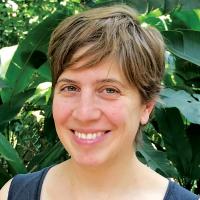
Mariana Benítez
Agency and Directionality in Development
Cellular agency in multicellular development and cancer
Mexico Autonomous National University (UNAM)
Mariana Benítez studied Biology at Mexico's Autonomous National University (UNAM) and a MSc on Non-Linear Dynamics and Complex Systems at the Autonomous University of Mexico City (UACM). Then, she finished a PhD at the Institute for Ecology, again at UNAM, and made two postdoctoral stays, one at the Center for Complex Systems at UNAM and another one at Masaryk University, in the Czech Republic. In 2012 Mariana took a position at the Institute for Ecology (UNAM). Her research has focused on understanding how patterns and collective properties emerge and evolve at different spatial and temporal scales in diverse biological systems. Among her current research interests are: multicellular development and evolution in bacteria and plants, structure and dynamics of agroecosystems and sustainable food systems. Some of the theoretical frameworks that have guided her research are Complexity Sciences, Ecological Evolutionary Developmental Biology and Agroecology. She has adopted theoretical, simulation and empirical approaches allowing for integrative and interdisciplinary research. Her work has also been deeply challenged and enriched by transdisciplinary and political projects in which she has collaborated with diverse groups and communities beyond academia. The UNAM team working with Myxobacteria also includes: Dr. Alejandro V. Arzola (UNAM) and Dr. Natsuko Rivera-Yoshida (UNAM).
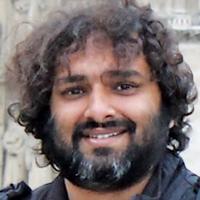
Ramray Bhat
Agency and Directionality in Development
Cellular agency in multicellular development and cancer
Ramray Bhat is an associate professor in the department of Molecular Reproduction, Development and Genetics and an associate faculty of the Centre for BioSystems Science and Engineering at the Indian Institute of Science, Bangalore, India. He has an undergraduate degree in medicine from the University of Calcutta, a PhD in developmental biology from the New York Medical College, and was a Komen postdoctoral fellow at the Lawrence Berkeley National Laboratory. His interests lie at the interface of development, evolution and cancer. His research is funded by the departments of Biotechnology and Science and Technology of the Government of India and the Wellcome Trust-DBT India Alliance.
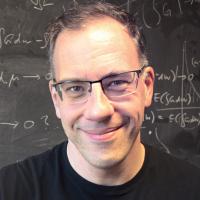
Tilmann Glimm
Agency and Directionality in Development
Cellular agency in multicellular development and cancer
Western Washington University
Tilmann Glimm is a professor of mathematics at Western Washington University in Bellingham, Washington, USA. He grew up in Germany and studied mathematics and physics at the Technical University Berlin before obtaining his Ph.D. in mathematics from Emory University in 2003. His main research is in modeling pattern formation in multicellular systems and development, using partial differential equations and agent-based models.

Vijaykumar Krishnamurthy
Agency and Directionality in Development
Cellular agency in multicellular development and cancer
Vijay has a PhD in physics from the Indian Institute of Science. He spent a few years as a postdoc at the Max-Planck Institute for the Physics of Complex Systems and the Max-Planck Institute of Molecular Cell Biology and Genetics in Dresden, Germany. He has been on the faculty of the International Centre for Theoretical Sciences, Tata Institute of Fundamental Research, Bengaluru since 2015. Vijay's research interests are broadly in the physics of living systems. He is, in particular, fascinated by morphogenetic processes during development and has worked on understanding mechanobiological patterns in active materials. He is keen to understand the coupling between active mechanical forces, regulatory biochemistry and the geometry of shapes in cells and tissues. He is a recipient of the Ramalingaswami re-entry fellowship by the Department of Biotechnology, Govt. of India and is also the head of a Max-Planck partner group in Biological Physics at ICTS-TIFR.

Lenny Moss
Agency and Directionality in Development
Cellular agency in multicellular development and cancer
Lenny Moss studied biology and chemistry at San Francisco State University, doctoral studies in biophysics and biochemistry at UC Berkeley, completing his doctorate in cell biological research at the Lawrence Berkeley Labs. He the did post-doctoral research in human developmental cell biology at UC San Francisco Medical Center and a second PhD in philosophy at Northwestern University. Moss was a professor of philosophy for over 20 years at the University of Notre Dame and the University of Exeter. His interests and publications range from philosophical and theoretical biology to philosophical anthropology, social ontology, philosophy of mind and critical social theory with an overarching interest in bringing together questions of naturalism and normativity, and non-reductively bridging the chasm between “nature” and “culture”. He is the author of "What Genes Can’t Do" (MIT, 2003). A new book entitled "The Gambit of Geist – Naturalism, Normativity and the Hybrid Hominin" is presently in preparation.
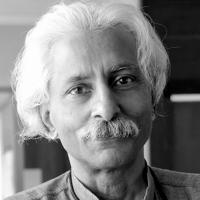
Vidyanand Nanjundiah
Agency and Directionality in Development
Cellular agency in multicellular development and cancer
Indian Institute of Science Bangalore
I studied physics and mathematics as an undergraduate (Bombay University) and took a doctoral degree in physics (University of Chicago). My research has been in developmental biology initially, and subsequently in evolutionary biology. My main interest has been the development and evolution of social behaviour in the social amoebae, with a particular emphasis on how single cell properties, especially their heterogeneities, are correlated with collective behaviour. I enjoy teaching and writing for non-specialists.
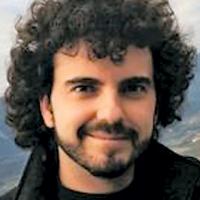
Daniel Nicholson
Agency and Directionality in Development
Cellular agency in multicellular development and cancer
George Mason University
Daniel J. Nicholson is Assistant Professor of Philosophy at George Mason University. He holds a Ph.D. in Philosophy from the University of Exeter, an M.A. in History and Philosophy of Science from the University of Leeds, and an M.Biol. in Molecular and Cellular Biology from the University of Bath. Dr. Nicholson's research is characterized by a strongly interdisciplinary engagement with the conceptual foundations of the life sciences—an engagement that combines and integrates historical, philosophical, and theoretical approaches. A central organizing theme of his research is the ontology of living systems, particularly the ways in which organisms differ from other complex organized systems like machines, and on the epistemic implications of these differences. His work can be regarded as a concerted attempt to revive an organism-centred philosophy of biology capable of overcoming the mechanicist and reductionist limitations of late twentieth-century biology.

Sahotra Sarkar
Agency and Directionality in Development
Cellular agency in multicellular development and cancer
University of Texas at Austin
Sahotra Sarkar is Professor of Philosophy and of Integrative Biology at the University of Texas at Austin.
